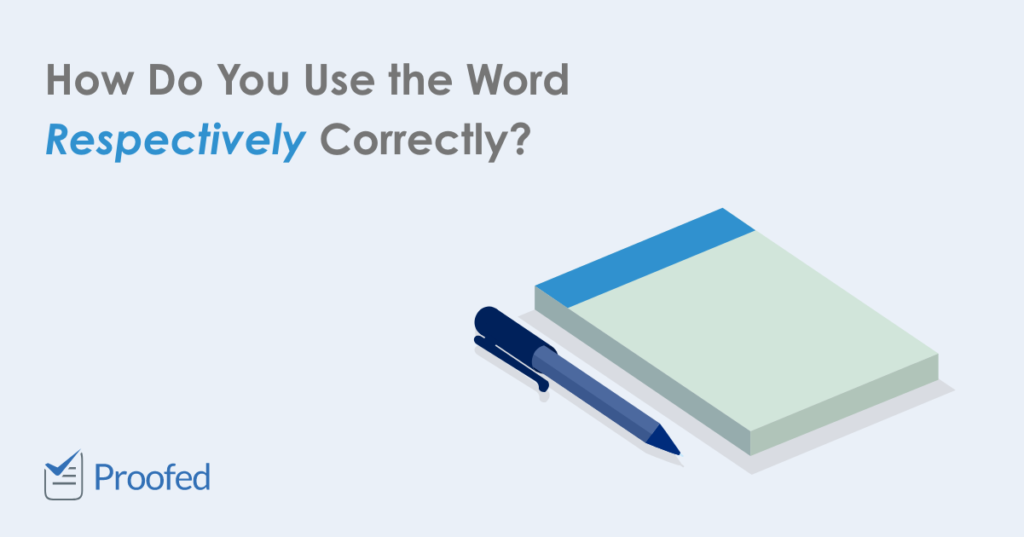Today, we’re looking at the word ‘respectively’, which we use to refer to something previously mentioned. This is a great word when used correctly, allowing us to clarify how different parts of a sentence relate to one another. But it’s also easy to misuse if you’re not sure how it works.
Let’s look first at how ‘respectively’ should be used, then, before examining a couple of common errors you’ll want to avoid.
How to Use ‘Respectively’ in a Sentence
‘Respectively’ is an adverb meaning ‘in the order mentioned’. We use it when we want to emphasise the relationships between two pairs or items in two parallel lists (i.e. two lists that contain the same number of items). For example, we could use ‘respectively’ as follows:
Paris and Berlin are the capital cities of France and Germany, respectively. ✓
This tells us that Paris is the capital of France and that Berlin is the capital of Germany. We know this because ‘respectively’ means that the first city mentioned (Paris) goes with the first country mentioned (France), and likewise for the second city (Berlin) and country (Germany).
Common Error: Non-Parallel Lists
People make two main errors when using ‘respectively’. One is to use it without preceding parallel structures, or without a direct one-to-one relationship between items in two lists:
The wires connect to the diode and fuse, respectively. ✗
Here, for example, ‘respectively’ does not make sense because we don’t know how many wires there are or how they are distinct from each other. To correct this, we would need to write:
The orange wire and green wire connect to the diode and fuse, respectively. ✓
In this version, we can clearly see which wire connects to which component.
Find this useful?
Subscribe to our newsletter and get writing tips from our editors straight to your inbox.
Common Error: Unnecessary Use of ‘Respectively’
Another error is to use ‘respectively’ when it isn’t necessary. For instance:
Dogs and cats are common household pets, respectively. ✗
In this case, since both dogs and cats are pets, we can lose ‘respectively’:
Dogs and cats are common household pets. ✓
We would, however, use this term to distinguish between the two. For example, we could clarify the genus to which each species belongs:
Dogs and cats belong, respectively, to the genera Canis and Felis. ✓
Here, without the ‘respectively’, it would not be 100% clear which species belonged to which genus. This, therefore, is a good use of the term.
And if you need any more advice on using this word in a document, don’t forget you can try our proofreading service for free.
